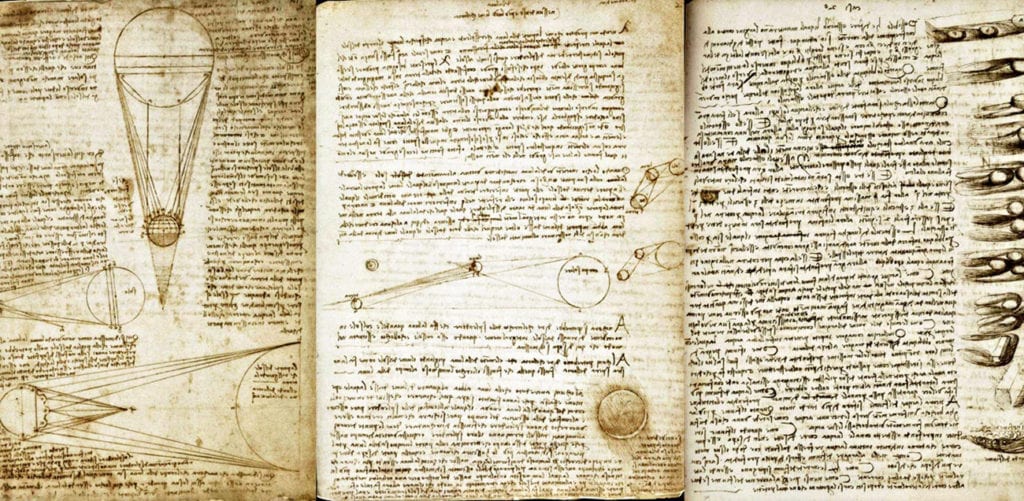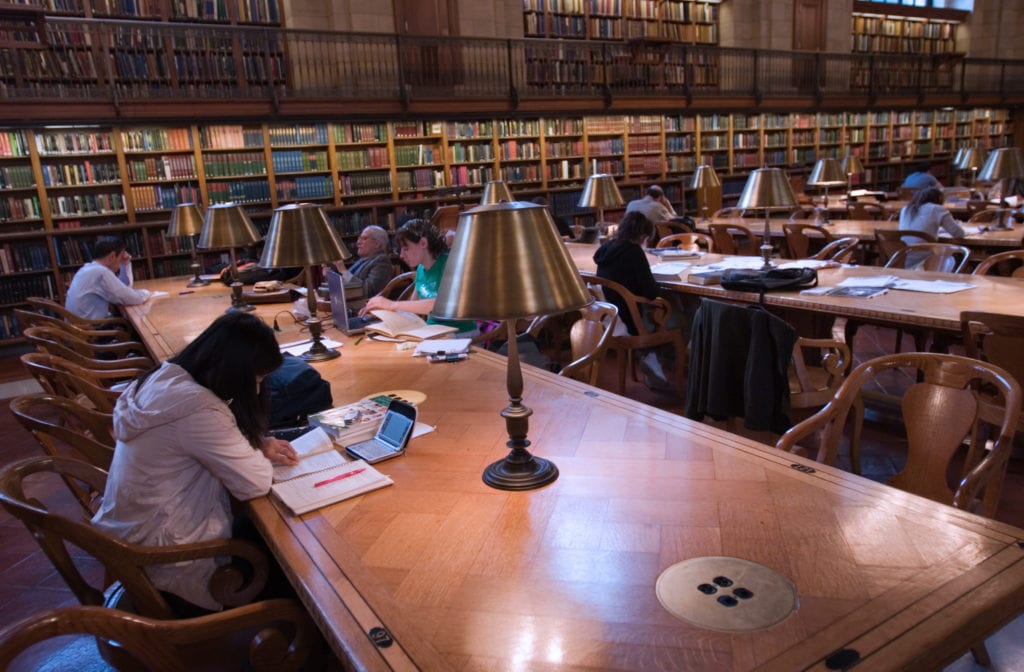 History
History  History
History  Health
Health 10 Everyday Activities That Secretly Alter Consciousness
 History
History Top 10 Historical Disasters Caused by Someone Calling in Sick
 Animals
Animals 10 New Shark Secrets That Recently Dropped
 Movies and TV
Movies and TV 10 Forgotten Realities of Early Live Television Broadcasts
 Technology
Technology 10 Stopgap Technologies That Became Industry Standards
 Weird Stuff
Weird Stuff 10 Wild Facts About Taxidermy That You Probably Didn’t Know
 Travel
Travel 10 Beautiful Travel Destinations (That Will Kill You)
 Miscellaneous
Miscellaneous 10 Modern Marriage Rituals Born from Corporate Branding
 Weird Stuff
Weird Stuff Ten Bizarre Visions of 2026 from Fiction
 History
History 10 “Modern” Problems with Surprising Historical Analogs
 Health
Health 10 Everyday Activities That Secretly Alter Consciousness
 History
History Top 10 Historical Disasters Caused by Someone Calling in Sick
Who's Behind Listverse?

Jamie Frater
Head Editor
Jamie founded Listverse due to an insatiable desire to share fascinating, obscure, and bizarre facts. He has been a guest speaker on numerous national radio and television stations and is a five time published author.
More About Us Animals
Animals 10 New Shark Secrets That Recently Dropped
 Movies and TV
Movies and TV 10 Forgotten Realities of Early Live Television Broadcasts
 Technology
Technology 10 Stopgap Technologies That Became Industry Standards
 Weird Stuff
Weird Stuff 10 Wild Facts About Taxidermy That You Probably Didn’t Know
 Travel
Travel 10 Beautiful Travel Destinations (That Will Kill You)
 Miscellaneous
Miscellaneous 10 Modern Marriage Rituals Born from Corporate Branding
 Weird Stuff
Weird Stuff Ten Bizarre Visions of 2026 from Fiction
Top 10 Fascinating Facts About Books
Figures from 2019, show that adults in the US spend an average of 3 hours 35 minutes watching TV every day. However, study has found that watching TV can lower your IQ, while reading is a way of reducing stress, improving memory and even preventing Alzheimer’s.
In his book Brief Answers to the Big Questions (2018), Stephen Hawkins states:
“If you stacked the new books being published next to each other, at the present rate of production you would have to move at ninety miles an hour just to keep up with the end of the line”.
Reading remains the most popular hobby in the world and some of the most interesting facts are featured here. Everything from the largest library in the world to the origin of the term ‘bookworm.’
10 Bibliophobia

A lot of people might rate reading as one of their favorite hobbies, but bibliophobia is the unusual fear of books and reading. Someone could fear the story of the book itself, holding a book or even just being in a library. They might also be terrified of reading out loud and possible symptoms include shaking, sweating or even crying. School children might even skip classes to save themselves from the risk. Treatment can be difficult if the root cause isn’t established. Maybe someone was forced to read all the time when they were a child or have a learning disability and find it a struggle to read out loud.
Sub-types of this phobia include ‘mythophobia’, the fear of false statements and ‘metrophobia’ which is a fear of poetry. Abibliophobia actually means the complete opposite. This is an uncommon fear of running out of things to read.[1]
9 Most Expensive Book

In 1994, Bill Gates bought the ‘Codex Leicester’ by Leonardo de Vinci for $30.8 million, making it the most expensive book ever purchased. Purchased in the 1700s by the Earl of Leicester, this is where the book gets its name from. It was sold to an art collector in 1980 before Bill Gates decided he wanted it for his own collection.
A big fan of Leonardo de Vinci, Gates states:
“Even though, in the age of free Wikipedia entries and YouTube videos, it’s easier than ever to satisfy your curiosity. It’s ironic that we can be reminded about the wonders of modern life by a man who lived 500 years ago.”
After buying the book, each page was scanned to create a digital version of the ‘Codex Leicester’ that can now be viewed online. Wanting to display the book for everyone to see Codex wallpapers and screensavers were even made part of Windows 98 and Windows ME.[2]
8 Highest Library Fine

Although she wasn’t the one who originally borrowed ‘Days and Deeds’, on 2nd June 2020 Emily Cannellos-Simms was awarded a Guinness World Record for the largest book fine ever paid. This fine came to over $345. ‘Days and Deeds’ is a book of children’s poems and it was due back to Kewanee Public Library in Illinois on 19th April 1955. When it wasn’t returned, fines continued to rise at 2 cents per day.
The library itself is 145 years old, opening in 1875 and first named the Kewanee Library Association. If the book had been taken out around the time it opened, fees might have come to over $1000. Today, 92% of libraries in the United States impose library fines. Su Epstein, Library Director at Saxton B. Little Free Library in Columbia, Connecticut, states:
“Fines are a tangible reminder of the patron’s responsibility, the library’s importance, and the consideration of others.”[3]
7 Bibliosmia

Bibliosmia is a real term that refers to the effect that the smell of a book has on the nostrils. Some people feel this is a crucial part of the reading experience and something E-books just can’t supply.
Author Ray Bradbury is certain that:
“There is no future for e-books because they are not books. E-books smell like burned fuel”.
His book ‘Fahrenheit 451’ (1953), takes place in a dystopian society where the burning of books is seen as a way to regulate dangerous, revolutionary or unhappy ideas.
The common smell we associate with books is caused by the chemical breakdown of compounds in the paper. This happens over time and the smell continues to grow stronger. Many people feel that the older the book the better it smells. To many, each book has its own smell, indicating originality. A survey conducted in 2015 by UK ‘Reading Habits’ concluded that just 10% of respondents preferred e-books over regular ones, while 71% had never even used an e-book.[4]
6 Book Balancing Record

Another extraordinary Guinness World Record is for the most people to balance books on their heads in a single location. In 2012, Ashley James was the 11-year old who came up with the idea and she said her aim was to:
“Improve literacy levels of indigenous children in Australia and to do something practical in providing books to communities who need them. Hopefully the event was fun and inspired students for futures charitable aims”.
998 female students and teachers from Monte Sant’ Angelo Mercy College in North Sydney decided to stop reading their books for the day and balance them on their heads instead. After walking along for five meters, this broke the previous record of 939, set in the Philippines in 2008. The books used to reach this new record were distributed among children in the Northern Territory, an orphanage in Kenya and a school in Tanzania.[5]
5 First Book Written on Typewriter

Historians agree that Mark Twain’s ‘Life on the Mississippi’ (1882) was the first typewritten manuscript sent to a publisher. In his autobiography Mark Twain not only boasts that:
“I was the first person in the world that ever had a telephone in his house.”
But also:
“I was the first person in the world to apply a typemachine to literature.”.
In his book, Mark Twain accidentally refers to ‘The Adventures of Tom Sawyer’ as the first book published, and this book is often mentioned on fact lists. Typewriter historian Darryl Rehr confirms that ‘Life on the Mississippi’, written on a Remington No. 2 was actually the first.
27-year old Kelly Simms recently found a first edition of this novel in a thrift store. Buying it for $5, it was found out to be worth over $3000. She still makes it clear that she wouldn’t sell the book at any price.
“The value of the book is an interesting debate but is non-consequential in the end. It’s priceless to me for its age and my joy upon discovering it.”[6]
4 Largest Library in the World

Located in Washington DC, the Library of Congress is the largest library in the world. It was founded in 1800 after the new national government was moved from Philadelphia to Washington. An act of Congress permitted by President John Adams provided $5000 to pay for books for the use of Congress. However, in 1814 the Capitol building was burnt down. This building housed the library and its core collection of 3000 volumes was destroyed. In 1815, Congress granted the purchase of Thomas Jefferson’s personal library, holding 6,487 books.
Today, there are three buildings connected by underground passageways, the Thomas Jefferson Building, John Adams Building and James Madison Memorial Building. Holding over 38 million books, the total length of bookshelves in the library reaches 745 miles. Each working day, approximately 10,000 items are added to these collections and books can be discovered in 470 different languages.[7]
3 Longest Novel

‘Remembrance of Things Past’, (sometimes translated as ‘In Search of Lost Time’) was written by French author Marcel Proust. This is a novel published in seven volumes that were released between 1913 and 1927. It is the story of the authors’ own life and the society he lived in, portraying himself as someone searching for the meaning and purpose of his own life. It tries to encourage people to appreciate life while they have it.
The first part of this volume ‘Swann’s Way’ was rejected by the publishers he sent it to, so Proust decided to publish the book himself. His father was a great doctor known for eliminating cholera from France and Proust stated:
“If only I could do for humanity as much good with my books as my father did with his work”.
The seven volumes of this novel contain 1,267,069 words, making the estimated number of characters used 9,609,000 (spaces are counted as one character each). This doubles the amount of words featured in War and Peace.[8]
2 Bookworm

Now applied to someone who loves books and spends all their time reading, the word ‘bookworm’ originates from the name of an insect with the power to damage books. The drugstore beetle and cigarette beetle are two of these insects who don’t just like to eat the bookbinder’s paste, but also the bindings and leaves of the books. Certain species of moths (such as the brown house moth) have also been referred to as ‘bookworms’ but actually, there’s no species of worm that has the power to eat through the pages.
At first, calling someone a bookworm was an insult. This meant they were self-centered and read too much when they should be out socializing with other people. Today, bookworm just refers to someone who loves reading. They might sit down and read the dictionary, just for the sake of having something to read.[9]
1 Most Popular Book

While the exact number sold can never be determined, the Holy Bible remains the best-selling book of all time. A survey set up by the Bible Society, determined that between 1815 and 1975 over 2.5 billion copies had been sold. Since then, these numbers have apparently doubled.
While the Holy Bible was first published in the 1450’s, ‘Harry Potter and the Philosopher’s Stone’ was first published in 1997 and by January 2020, the Harry Potter series had already sold over 500 million copies. It has also been translated into 80 different languages and the first book of the series remains one of the most popular novels ever published.
The Holy Bible might be banned in 52 countries, but this hasn’t stopped it from becoming the most popular book of all time. Harry Potter remains the most banned book series in America, which has a lot to do with Catholic school policies that are against the reference to magic, spells and curses.[10]








